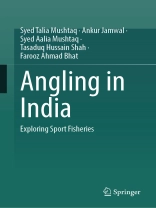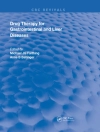This book discusses the diverse array of aquatic life of Indian waters, including rivers, lakes, and coastal regions. This book is a useful manual as it explores the historical and cultural background of fishing in the country. It highlights the need of ethical fishing methods and the crucial part fishermen play in protecting the aquatic habitats. This book also covers lesser-known fishing locations and thus promotes a conservation and sustainable tourism mindset. It promotes environmental awareness and care with a focus on highlighting Indian biodiversity. Further, it offers vital details on licenses, rules, and equipment used in angling. Emphasis has been given on responsible angling and the role of anglers in aquatic biodiversity conservation efforts.
This book acts as an instruction manual for anyone wishing to discover, comprehend, and safeguard the country’s unique sport fisheries. It is also relevant to environmentalists and conservation advocates. Scholars and researchers in the fields of ecology, environmental science, and cultural studies will also benefit from this book for academic purposes and for understanding the cultural and ecological dimensions of angling in India.
สารบัญ
.- Chapter 1: Introduction.
.- Chapter 2: History of sport fisheries in India.
.- Chapter 3: Principle game fishes of Inland waters.
.- Chapter 4: Marine game fishes of India.
.- Chapter 5: Sport fishing sites of India
.- Chapter 6: Sport fishing potential in the Himalayan region
.- Chapter 7: Sport fishing potential in the Western Ghats.
.- Chapter 8: Sea game fishing of Andaman and Nicobar Islands.
.- Chapter 9: Sea game fishing of Lakshadweep Islands.
.- Chapter 10:Casting.
.- Chapter 11_Fly Fishing.
.- Chapter 12_Flipping.
.- Chapter 13_Pitching.
.- Chapter 14_Rigging.
.- Chapter 15_Knots.
.- Chapter 16_Live and artificial baits.
.- Chapter 17_Handling of fish.
.- Chapter 18_Water and sun safety.
.- Chapter 19_Rod and reel.
.- Chapter 20_Sport fishing gears and equipment.
.- Chapter 21_Ecotourism and recreational fisheries.
.- Chapter 22_Role of sport fisheries in conservation.
.- Chapter 23_State regulations governing sport fisheries
.- Chapter 24_Future Scope of Sport fishing in India.
เกี่ยวกับผู้แต่ง
Dr. Syed Talia Mushtaq is presently working as an assistant professor in the Division of Fisheries Resource Management, Faculty of Fisheries, SKUAST-Kashmir, India. She graduated in fisheries science from College of Fisheries, G.B.P.U.A.T, Pantnagar, India and completed her masters in aquaculture from Central Institute of Fisheries Education, Mumbai. She pursued her Ph D in Fisheries Resource Management from Faculty of Fisheries, SKUAST-K. She has an experience of working as a farm manager at National Fish Seed Farm, Manasbal. She has a number of publications and projects to her credit. She is dedicated towards the conservation of endemic fish fauna of the state and the country.
Dr. Ankur Jamwal is an assistant professor at Azim Premji University, Bengaluru, India. Dr. Jamwal has over a decade of experience as an aquatic biologist and ecotoxicologist and has published over twenty research articles in international journals of repute.In addition to studying the effects of stress on the physiology of aquatic animals, Dr. Jamwal is also interested in the risk assessment of consumption of food cultivated using water that may be contaminated with toxic elements and compounds. He applies the concepts of aquatic physiology to developing sustainable aquaculture practices.
Dr. Syed Aalia Mushtaq completed her B.F.Sc, M.F.Sc and Ph D from the Faculty of Fisheries, SKUAST-Kashmir, India. She has many research publications in national and international journals. She has worked on various aspects of ecology and biodiversity of an important wetland of the state of Jammu and Kashmir (Hokersar).
Dr. Tasaduq H. Shah is currently working as an associate professor at the Division of Fisheries Resource Management, Faculty of Fisheries, SKUAST-Kashmir, and has M.F.Sc. and Ph D degree from Central Institute of Fisheries Education (ICAR-CIFE), Mumbai, India. He has overtwo decades of experience in fisheries science. He has guided dozens of masters and doctoral students and published more than 60 research publications in national and international journals. He has also worked in Jammu and Kashmir Fisheries Department in different capacities and has been especially involved in the propagation and marketing trout in Kashmir.
Dr. Farooz Ahmad Bhat is currently posted as Dean at the Faculty of Fisheries and Head, Division of Fisheries Resource Management, Faculty of Fisheries, SKUAST-Kashmir. He has worked on the fish biodiversity, aquatic ecology, population dynamics, distribution pattern of fishes in Jammu and Kashmir. He has published almost 115 research papers in both international and national journals with high impact factor.












